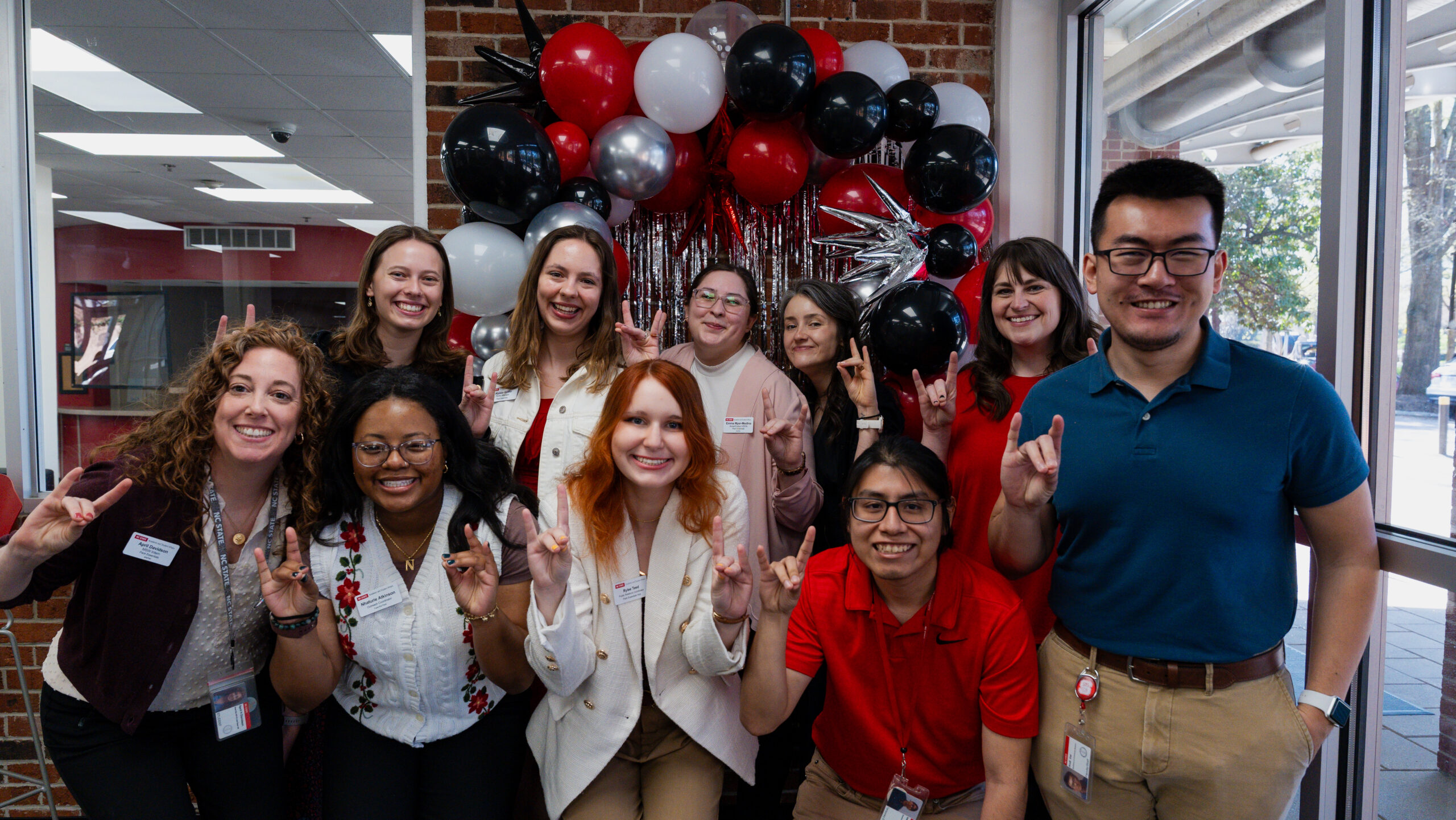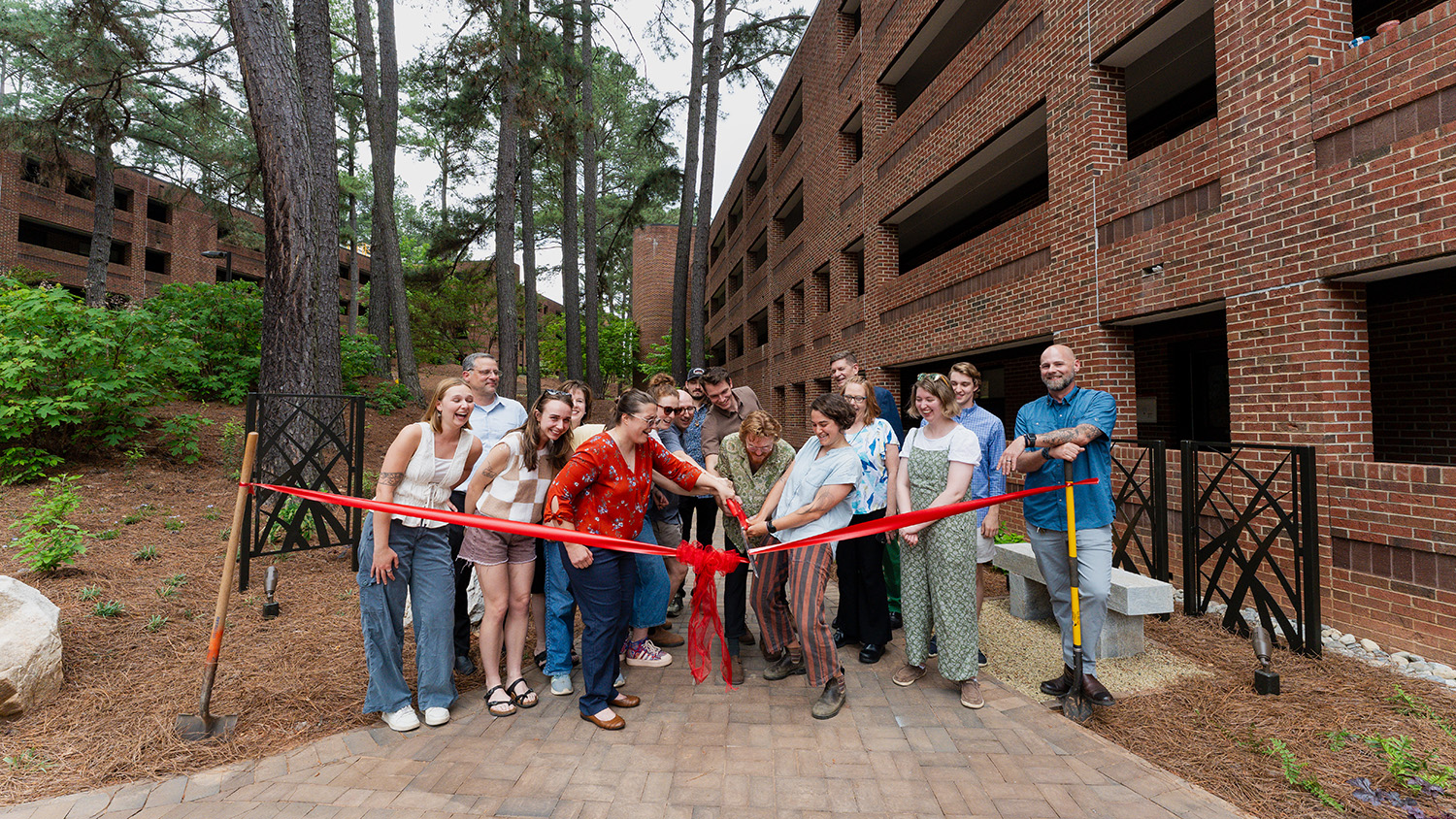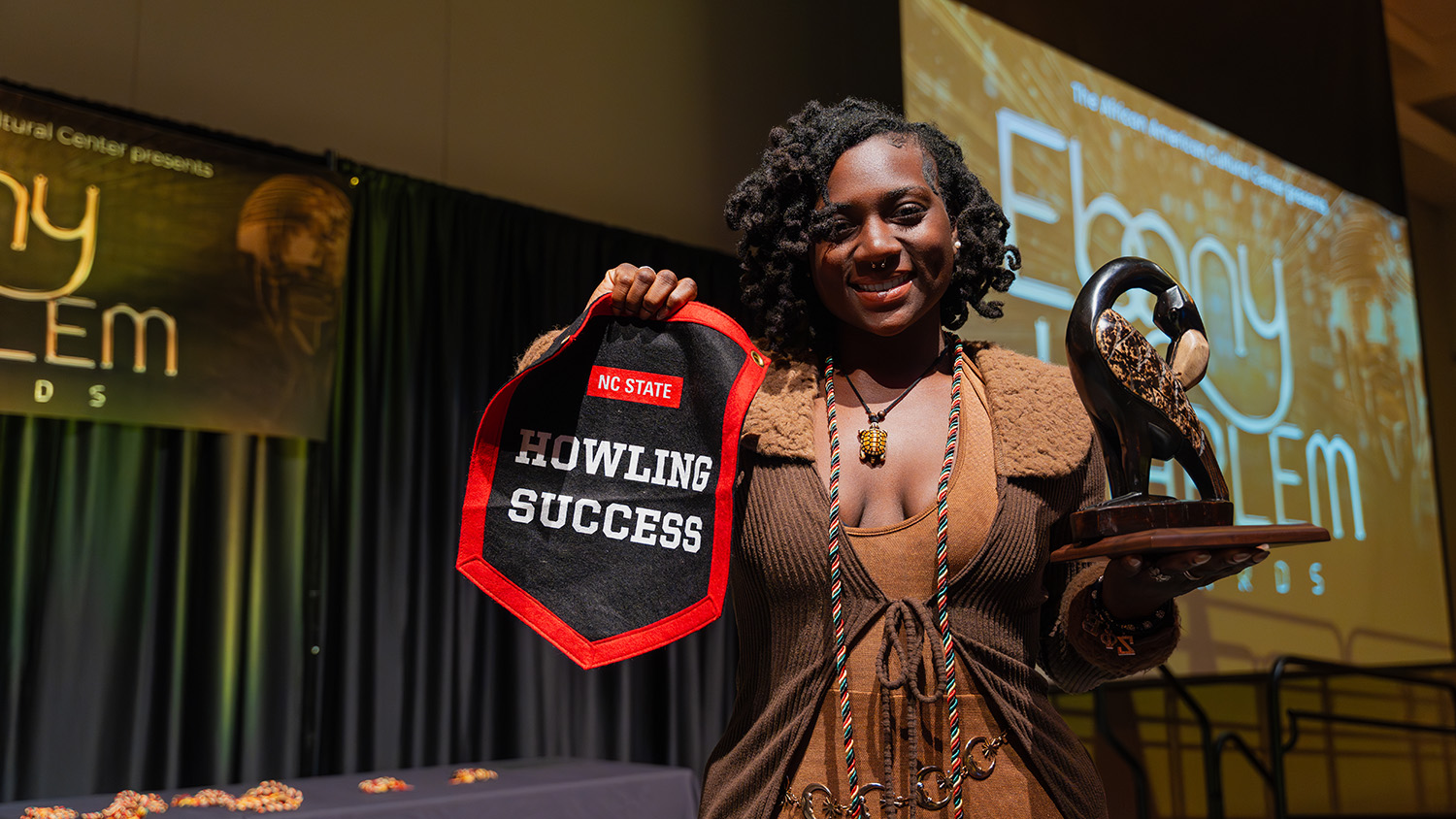Alternative Service Break Opens New Worlds for Past, Present, Future NC State Students
For over 20 years, NC State's Alternative Service Break Program has provided students with opportunities to make a difference in the world and learn about different cultures.
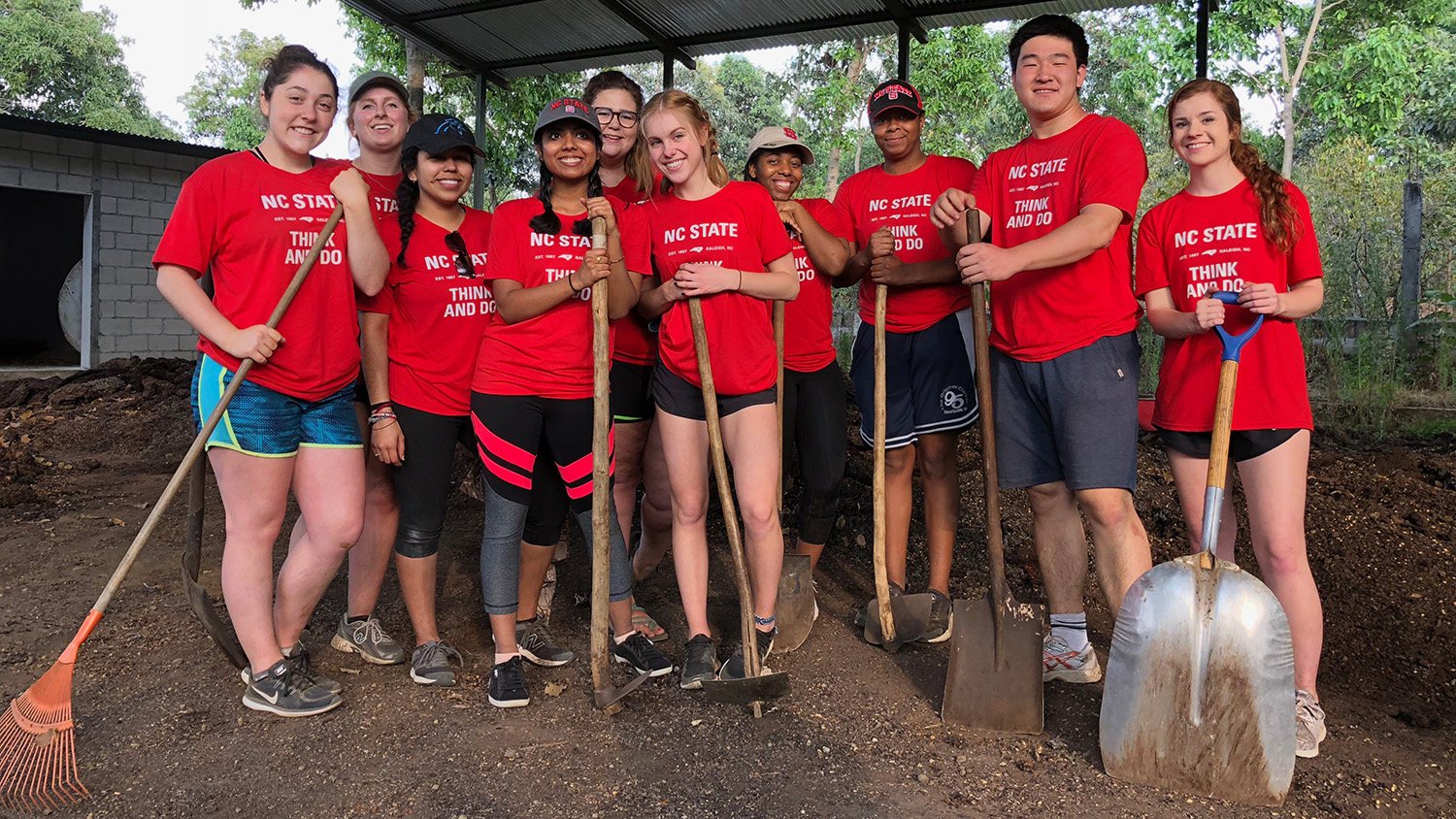
When NC State pauses classes for spring break in early March, groups of students will set out for nine different communities around the globe to make a difference.
As part of the university’s Alternative Service Break (ASB) program, a part of the Division of Academic and Student Affairs’ Student Leadership and Engagement program and launched in 2000, these students will serve the communities they’re traveling to and look to apply those lessons in their own communities when they return home.
“The mission of ASB is to get students out of their comfort zone, have them embed themselves in a different culture, really immerse themselves in the environment that they’re in and assist in meeting the needs of that community,” said Carly May, who joined NC State as the program’s assistant director about six months ago.
The mission of ASB is to get students out of their comfort zone.
The students getting ready to go on these upcoming spring break trips know that they’re setting out to make a difference in communities across the globe.
What they may not know is the lasting impact the trip will have on them.
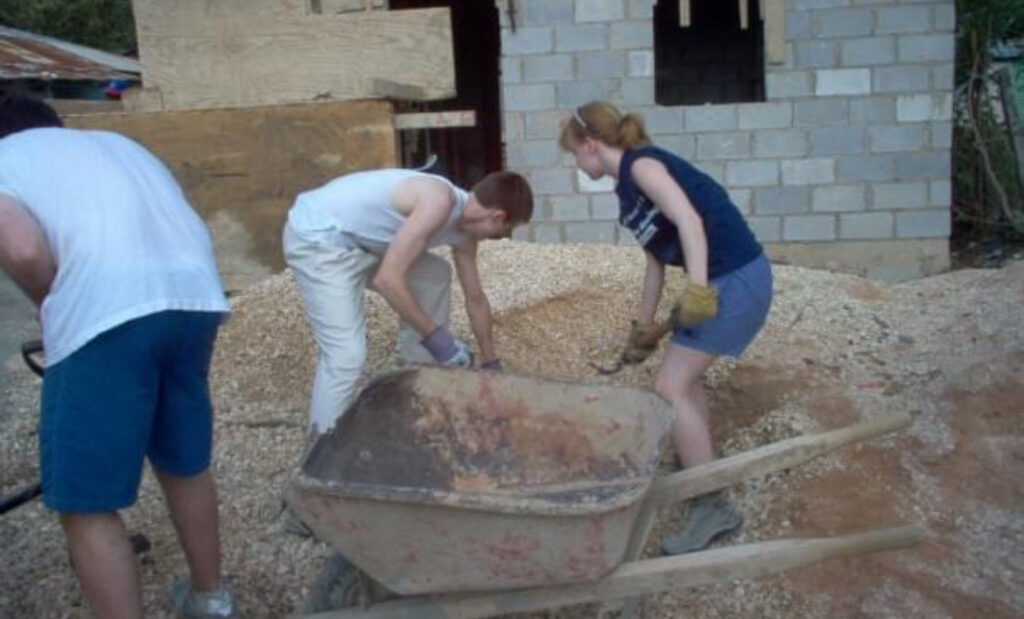
“It transformed who I was and my whole life experience following that,” said CJ Barnes, a 2005 NC State graduate who went on several trips as a team leader and a participant.
Service Through Education
Pre-education is a vital part of ASB’s programming. In the fall semester, all the student leaders take a course with May about having conversations with community partners to build trust and to research the social issues for the area they are traveling.
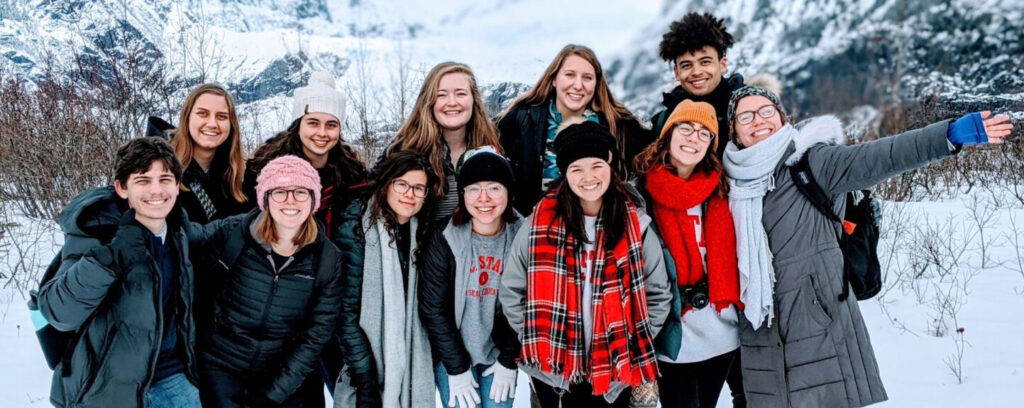
May and the student leaders then conduct pre-departure meetings with the participants to inform them about cultural and social issues. May says the program strives to avoid the dangers of “voluntourism,” in which underinformed service groups travel to communities and end up doing more harm than good.
“We’re particular as a program about embedding education on the front end and reflection during the trip and on the back end so that we’re making sure we’re having a lot of conversations proactively with our community partners about what the culture looks like where they are, what the social issues look like where they are and that context,” May said.
Mutually Beneficial Experience
As May explained, one of ASB’s most important goals is ensuring every trip mutually benefits both the participants and community partners.
For the participants, it’s a chance to explore a different part of the world and learn about a new culture they might not have otherwise encountered. It’s often also a chance for students to see a real-world application of what they’re studying in their classes.
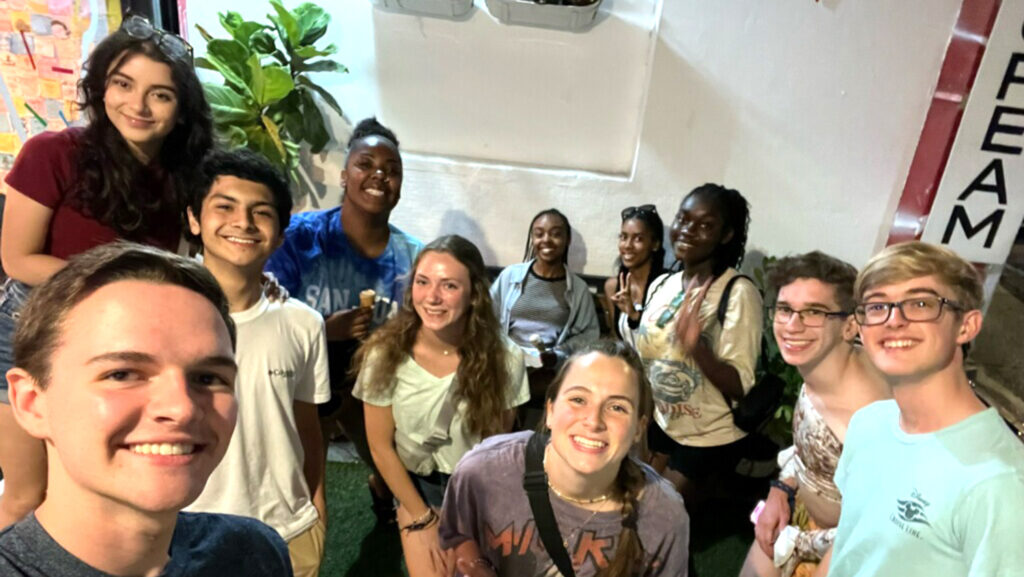
Brianna Soto, who will lead a trip to Peru this spring break, has gone to Puerto Rico as both a team leader and participant. Soto is a third-year student studying engineering and design education, so the housing construction on her trips has allowed her to see practical applications of her engineering studies.
“I think there’s nothing better than having a real-world application,” Soto said. “You can be in classes, doing the work, doing all of the statistics and everything else. But once you’re actually in another country and doing everything, it’s a completely different place and opportunity. I know that it’s helped me out.”
I think there’s nothing better than having a real-world application.
ASB has worked with several community partners on these trips for over a decade. One of its more recently established partnerships is with Service for Peace, a Dominican Republic-based organization focusing on community development and water access.
Service for Peace has a program for international participants called Lluvia. Lluvia is the word for rain in Spanish, but in this instance, it is an acronym that stands for learning, living, united, volunteering, innovating, and acting together.
Alejandro Cabrera, Service for Peace’s director, said that the partnership with NC State has been crucial in the program fulfilling those goals.
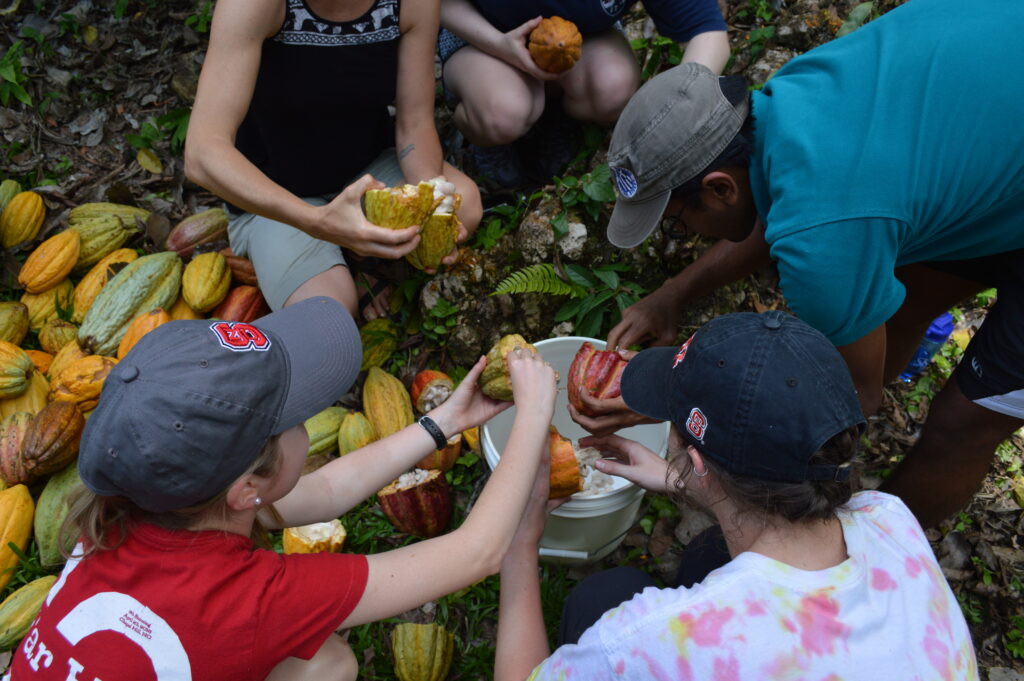
“We as an organization value the leadership program that NC State has before the trip,” Cabrera said. “When we receive the groups, we can tell the leaders and the group itself is well prepared for the cultural experience, the job, being here. In terms of participants, we value that.”
Cabrera said that, on his visits to NC State, he finds that the university’s values align with that of Service for Peace and that the program has learned much from its partnership with ASB.
“Every time we develop a program, we have a trip meeting and we evaluate what worked and what can be improved,” he said. “Also, the water harvesting system itself has been improved by some of the students who have come and are in the engineering area.”
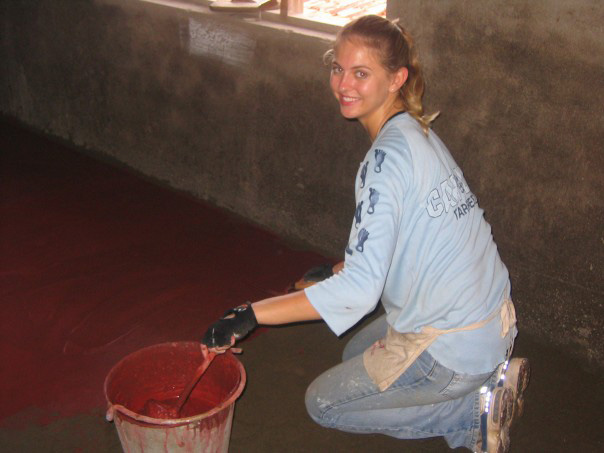
A Lifelong Impact
Some students don’t realize ASB’s full impact on them until they graduate from NC State. In the case of several, it influenced their future career paths.
Carla Babb, who graduated from NC State in 2006, is the Pentagon correspondent for Voice of America. Her job involves embedding with United States forces around the globe and telling the stories of the US military. She recently traveled to the Ukrainian capital of Kiev with United States Secretary of Defense Lloyd Austin.
Babb credits her ASB experience of building houses in Sri Lanka in 2005 after a devastating tsunami with giving her “the international news bug.”
“It was a life-changing experience,” she said.
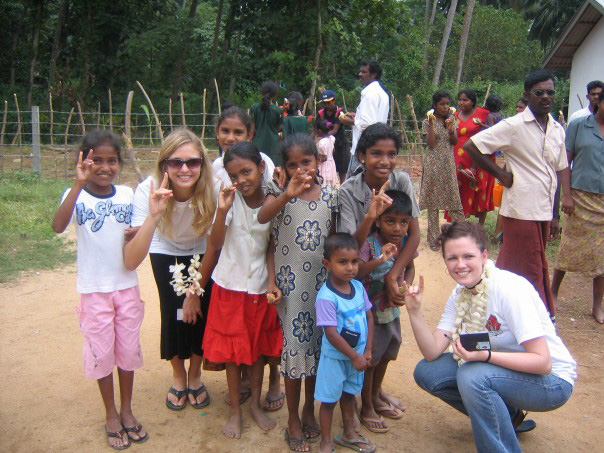
On the trip, Babb and some of her classmates were tasked with writing a blog chronicling the trip for the News & Observer, the local Raleigh newspaper, and were featured in an N&O article.
After returning home, Babb discovered that a group of students was going from Meredith College to Sri Lanka. The group’s initial plan wasn’t to do any kind of service or build houses, but simply see where the funds they had raised were going. However, after reading Babb’s blog, the group also decided to turn their trip into a service trip. Their story showed Babb the power of journalism and inspiring others to take action.
“It was quite an experience and responsibility that I took very seriously, to make sure that the story of the people who lost everything got out there,” Babb said.
It was quite an experience and responsibility that I took very seriously.
For Barnes, a 2005 graduate, his ASB experience led to a complete shift in his career path. Barnes, who went to the Dominican Republic as a team leader and participant as an undergraduate student, initially thought his career path lay in engineering.
However, after his ASB experiences, he returned to NC State to get his master’s degree in education with the goal of working in community service on college campuses. He went on an ASB trip to Alaska as a graduate student and then directed a similar program at New York University for several years.
“The opportunity to learn about another culture through a service experience was something unlike anything I had ever experienced before, which is what made me come back to be a team leader the following year,” Barnes said. “I think that allowed me to develop people’s interest in service and learning about another culture. From those experiences, I actually completely shifted what I chose to pursue as a career.”
The opportunity to learn about another culture through a service experience was something unlike anything I had ever experienced before.
Jessica Beyer graduated from NC State in 2006 and came to campus already interested in service opportunities. She said she’d gotten the “service bug” in high school, growing up near New York City and participating in several service projects after 9/11.
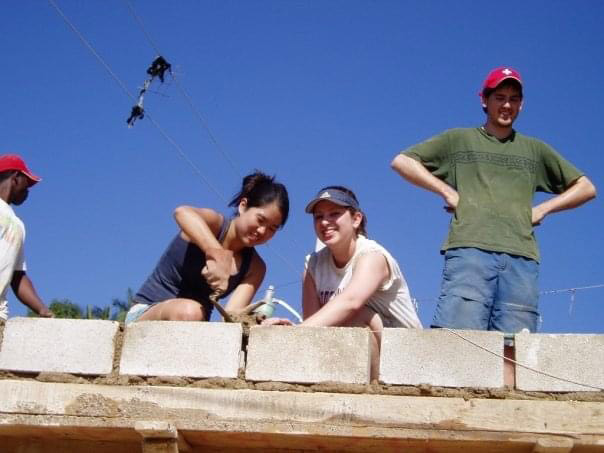
Seeing a posterboard for ASB is part of what drew her to choose NC State. Beyer eventually joined the program, went to the Dominican Republic once as a participant, then as a team leader with Barnes, and served again as a team leader in Ecuador for a third trip. Like Barnes, Beyer originally wanted a science (microbiology) career, but her ASB experiences led her to work with college students in service programs.
After graduation, she led an alternative spring break program at a small college in California, and she now works as the academic advisor for the Taneja College of Pharmacy at the University of South Florida. Beyer said that she works with students from all over the globe, and her ASB experiences help her connect with her students through cultural communication and shared experiences.
“I wanted to keep inspiring others to live to their fullest potential and to go out and change the world in whatever way they are going to do that,” Beyer said. “It was not only that it made that difference in my life, but the continued ripple effect. What I do makes a difference for you and you for the next people and so on.”
I wanted to keep inspiring others to live to their fullest potential.
The Future of ASB
As the ASB program continues to build back up in the wake of the COVID-19 pandemic, which paused global travel and reduced the number of trips in subsequent years, the program is looking to add more trips for spring break and beyond.
“We are open to exploring new partnerships with faculty and staff across campus to create new experiences,” May said. “If campus partners have ideas related to academic-discipline specific or research interests that can evolve into service-learning projects, we would love to connect with them to expand our reach!”
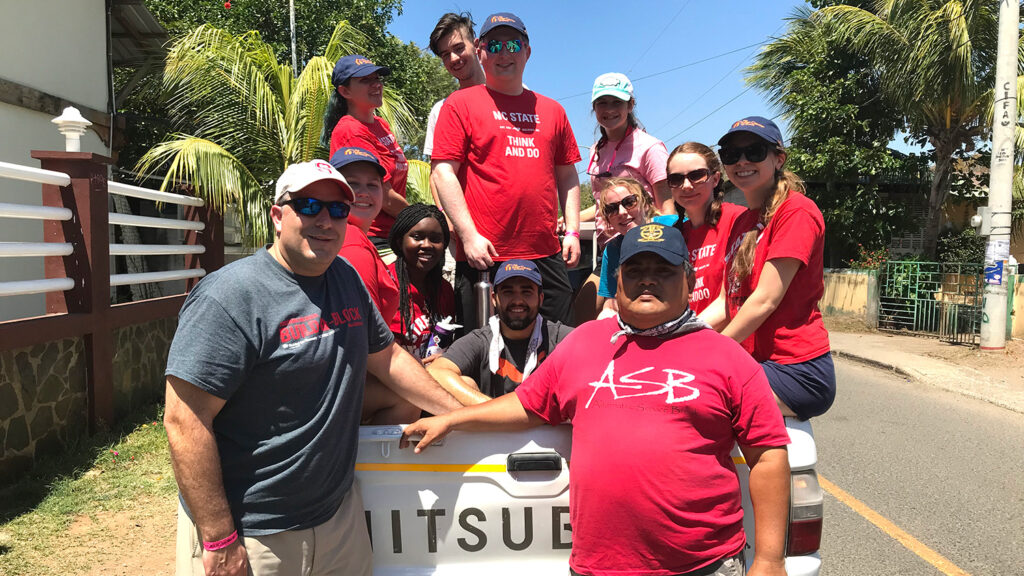
ASB participants will go to Alaska, Costa Rica, the Dominican Republic, Guatemala, Peru, Puerto Rico, Orlando (Florida), Rutherford (North Carolina) and Rwanda this March. The program is also looking to add trips in May and over fall and winter breaks to return to these communities multiple times a year.
“We’re returning to communities over and over again so that we’re contributing more to the communities that are there, strengthening those relationships and giving students more opportunities to engage in these programs,” May said.
Another way ASB is looking to give more students opportunities to be part of this transformational experience is through fundraising to remove financial barriers.
The program recently conducted a very successful crowdfunding campaign that raised $6,605, surpassing the original goal of $5,000 to provide 10 $500 travel scholarships, and donors continue to provide support for these student experiences.
“One thing that I want to happen in the future is to have subsidized trips,” Soto said. “These trips are a little expensive for some people, and I want other people to experience this as well.”
- Categories:
